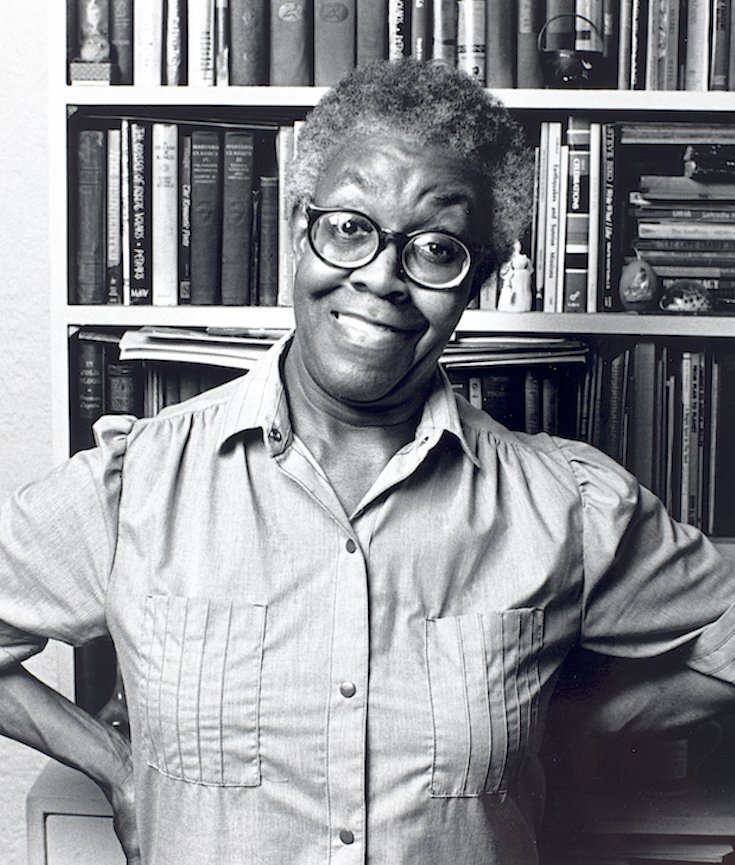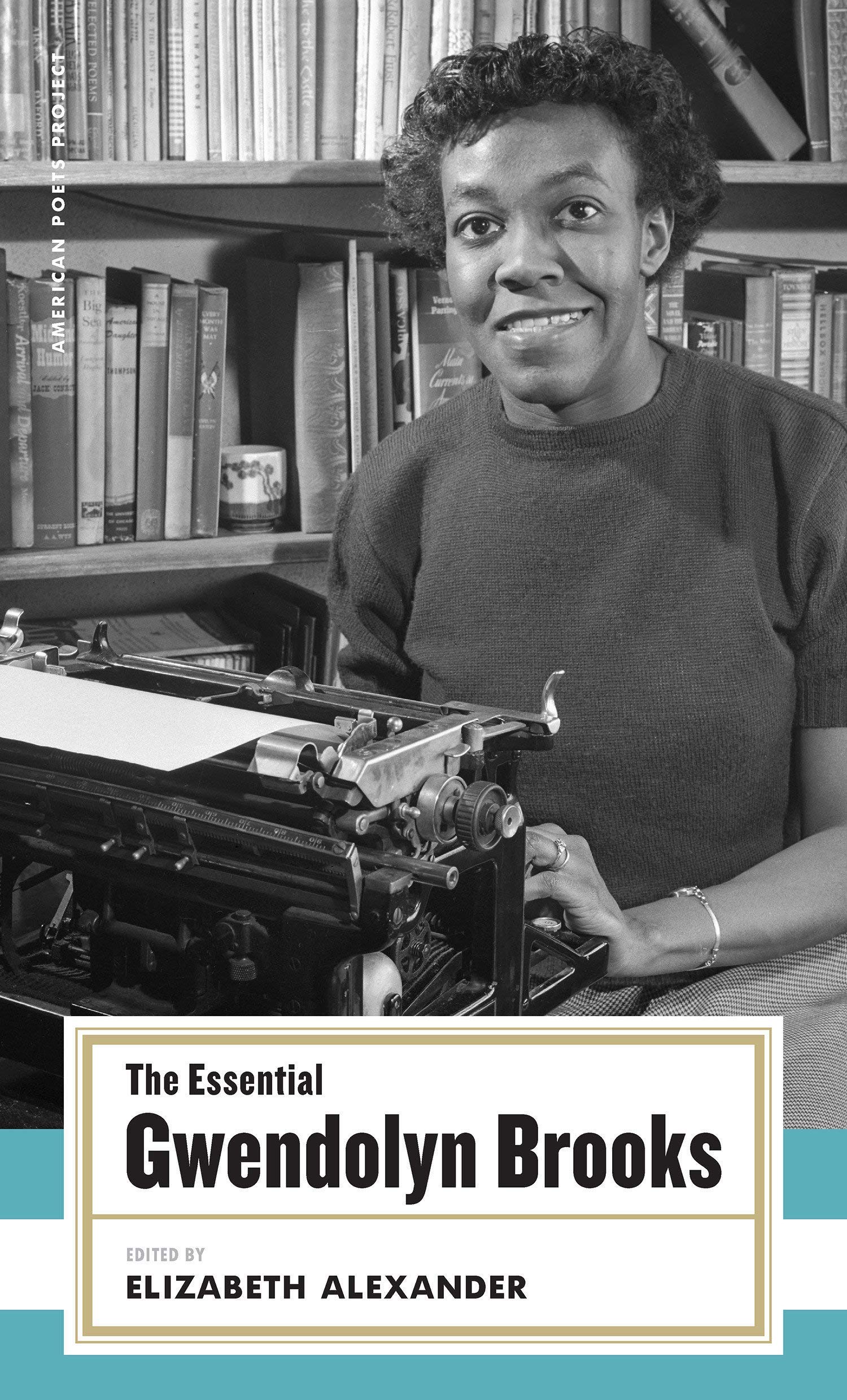Carried her unprotesting out the door.Kicked back the casket-stand. But it can’t hold her,That stuff and satin aiming to enfold her,The lid’s contrition nor the bolts before.Oh oh. Too much. Too much. Even now, surmise,She rises in the sunshine. There she goes,Back to the bars she knew and the reposeIn love-rooms and the things in people’s eyes.Too vital and too squeaking. Must emerge.Even now she does the snake-hips with a hiss,Slops the bad wine across her shantung, talksOf pregnancy, guitars and bridgework, walksIn parks or alleys, comes haply on the vergeOf happiness, haply hysterics. Is.
the rites for Cousin Vit
Gwendolyn Brooks
Feature Date
- June 1, 2020
Series
- What Sparks Poetry
Selected By
Share This Poem
Print This Poem
Gwendolyn Brooks, “the rites for Cousin Vit” from The Essential Gwendolyn Brooks.
Copyright © 1994 by Gwendolyn Brooks.
Reprinted by permission of Estate of Gwendolyn Brooks.

Gwendolyn Elizabeth Brooks was an American poet, author, and teacher. Her work often dealt with the personal celebrations and struggles of ordinary people in her community. She won the Pulitzer Prize for Poetry in 1950, for Annie Allen, making her the first African-American to receive the Pulitzer.
Throughout her prolific writing career, Brooks received many more honors. She was appointed Poet Laureate of Illinois in 1968, a position she held until her death, and what is now the Poet Laureate Consultant in Poetry to the Library of Congress for the 1985–86 term. In 1976, she became the first African-American woman inducted into the American Academy of Arts and Letters.
Brooks was born in Topeka, Kansas and at six-weeks-old was taken to Chicago, where she lived the rest of her life. Her parents, especially her mother encouraged her poetry writing. She began submitting poems to various publications, as a teenager. After graduating high school during the Great Depression, she took a two-year junior college program, worked as a typist, married, and had children. Continuing to write and submit her work, she finally found substantial outlets for her poetry. This recognition of her work also led her to lecturing and teaching aspiring writers. Several schools and institutions have been named in her honor.
She made a forceful and passionate poetry that fused Modernist aesthetics with African-American cultural tradition, a poetry that registered the life of the streets and the upheavals of the 20th century.

New York City, New York
"If you wanted a poem," wrote Gwendolyn Brooks, "you only had to look out of a window. There was material always, walking or running, fighting or screaming or singing." From the life of Chicago's South Side she made a forceful and passionate poetry that fused Modernist aesthetics with African-American cultural tradition, a poetry that registered the life of the streets and the upheavals of the 20th century. Starting with A Street in Bronzeville (1945), her epoch-making debut volume, The Essential Gwendolyn Brooks traces the full arc of her career in all its ambitious scope and unexpected stylistic shifts.
“Her formal range,” writes editor Elizabeth Alexander, “is most impressive, as she experiments with sonnets, ballads, spirituals, blues, full and off-rhymes. She is nothing short of a technical virtuoso.” That technical virtuosity was matched by a restless curiosity about the life around her in all its explosive variety. By turns compassionate, angry, satiric, and psychologically penetrating, Gwendolyn Brooks’s poetry retains its power to move and surprise.
Poetry Daily Depends on You
With your support, we make reading the best contemporary poetry a treasured daily experience. Consider a contribution today.



